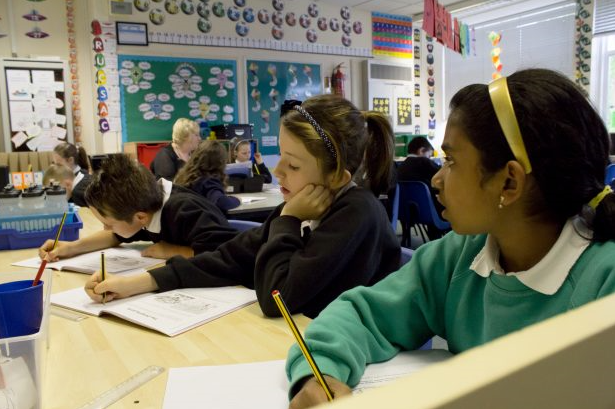
Dan Owen HMI, Specialist Adviser for school inspection policy, discusses how inspectors evaluate off-rolling on school inspections.
Off-rolling has received a lot of interest from the press and among school leaders and teachers recently. But as Ofsted-commissioned research published today suggests, different people have different definitions of what off-rolling is. At times this leads to confusion.
While there’s no legal definition of off-rolling, our definition within Ofsted is very simple.
Off-rolling is the practice of removing a pupil from the school roll without using a permanent exclusion, when the removal is primarily in the best interests of the school, rather than the the best interests of the pupil. This includes pressuring a parent to remove their child from the school roll.
While it may not always be unlawful, Ofsted believes off-rolling is never acceptable.
What doesn’t constitute off-rolling
There are many reasons pupils leave school. They might move house, leave the country, or move to another, closer school when a place becomes available. Of course, none of these things is off-rolling.
Other pupils might leave to be home educated. Again, where this is a parent’s clear choice, without pressure from the school, it is not off-rolling.
Dual-registering a pupil with another school such as an alternative provider is also not off-rolling. This is because the pupil has not left the roll of their school. The statutory guidance on alternative provision makes it clear that pupils should be dual-registered if they are attending AP.
‘Managed moves’ from one school to another as an alternative to exclusion can sometimes be effective in breaking the cycle of poor pupil behaviour. If these moves are used in pupils’ best interests, with the agreement of everyone involved within the statutory guidance, then again, this is not off-rolling.
Some pupils are permanently excluded. But as long as headteachers have followed the relevant legislation and statutory guidance, this is not off-rolling. Schools must be able to exclude pupils where necessary, and we support schools using exclusions as part of their behaviour policy and as a last resort.

What are examples of off-rolling and how do we spot it?
Before an inspection, Ofsted’s analysts give the lead inspector information about whether or not a school has exceptional levels of pupils leaving the school in years 10 and 11. Of course, this doesn’t always mean that off-rolling is happening. But it makes sure that inspectors explore this possibility during the inspection.
We know that disadvantaged pupils, those with special educational needs, and pupils with low prior attainment are disproportionately removed from the school roll. Inspectors will ask leaders about who has left and why. Are there any patterns in the groups who leave? How do they support pupils from these groups who are still in the school? For example, if most of the pupils who left have special educational needs and/or disabilities, how does the school cater for this group? Have they reviewed their provision and improved it if necessary?
If a school uses managed moves, inspectors may ask to see evidence of how these meet the statutory guidance. Again, if these moves are happening during years 10 and 11, inspectors will look closely at whether this decision is in the best interests of the pupils in question.
As our report shows, some schools, sadly, pressure families to take their children out of school to avoid an exclusion – many parents simply do not want a permanent exclusion on their child’s record. This is a clear example of off-rolling and is never acceptable, as the statutory guidance on exclusions makes clear. Exclusions rightly go through a robust process to make sure that they are justified. Avoiding this is not fair to pupils or parents.
How does Ofsted play a part in tackling off-rolling?
Ofsted puts children’s welfare and their quality of education first, so it is right that inspectors explore pupils leaving the roll. Whenever we uncover off-rolling, we set this out in the published inspection report. And under our new framework which takes effect later this year, any schools that are off-rolling are likely to be judged inadequate for leadership and management.
As recent, high-profile inspections have shown, off-rolling is not a black-and-white issue, and inspectors will need to gather evidence on inspection to see what is really happening. We know that very often there will be a good and positive explanation for why pupils have moved, and we will accept this.
We believe that the vast majority of schools always make decisions in the very best interests of pupils. However, if pupils are leaving a school to serve the school’s interests, not their own, we will identify this and report on it wherever we find it.
4 comments
Comment by Andrew posted on
Dear Dan
In a very small number of challenging circumstances the following may occur:
Parents and professionals are informed that a child is at risk of temporary or permanent exclusion. As part of that discussion in an inclusive school a reassurance of everything will be done to avoid this and specific actions for school professionals, wider professionals, the family and the child would be agreed, implemented and monitored closely with the expectation that the risks reduce for the child and for others in the school community that may be impacted by the child's behaviour. If a parent seeks to move the child in that circumstance - is that considered to be Off rolling? The is no pressure or desire for the child to move from the school, by the school view. However, it could be argued that it was as the parent may then seek another school to reduce risk of exclusion. The head teacher cannot prevent the school move beyond requesting the child remain and informing the next school of the current risks and the underlying reason for the move. The unintended consequence would be less clarity for parents about the risks of exclusion for the parent. At some later date they would probably say that the school should have been more open and honest with them at the time so they properly understood the risks involved. I am also a parent and would certainly want a school to communicate risks in a candid, sensitive and solution focused way.
An official view, particularly on:
- communicating the risks of exclusion with parents in an open and honest dialogue with parents.
- this leading to a potential school move to avoid an exclusion
would be welcomed.
Thank you for considering this
Comment by Christopher Robertson - Chair, The SENCO Forum posted on
The exemplification of off-rolling here focuses on secondary school provision (years 10 and 11).
However, off-rolling of pupils, particularly those with special educational needs, can and does take place at other times during their educational careers. Examples include:
- pressurising parents/carers to take their child out of school following primary-secondary transfer (year 7)
- pressurising parents/carers to take their child out of school during the primary phase of schooling by arguing (without robust evidence) that a 'special school placement' is required.
Comment by Ross McGill posted on
Off-rolling is largely triggered by league table positions - we all know this.
We also ... "know that disadvantaged pupils, those with special educational needs, and pupils with low prior attainment are disproportionately removed from the school roll." And they often end up in PRUs.
So, what can Ofsted do to help stop this gaming? Not naming the 300 schools is an interesting stance: https://schoolsweek.co.uk/ofsted-refuses-to-name-300-off-rolling-schools/ - are we harming the schools or keeping quiet could further harm vulnerable pupils?
And is this due to academy freedoms, increasing behaviour and mental health issues, lack of funding and/or curriculum? According to your research, off rolling happens more in secondary academies: https://assets.publishing.service.gov.uk/government/uploads/system/uploads/attachment_data/file/800582/Ofsted_offrolling_report_YouGov_090519.pdf
Isn't it about time Ofsted investigated if lack of school funding and league tables are the root cause for these behaviours in schools? And if "teachers think that pupils with behavioural issues are most at risk of being off-rolled", is this due to a narrow curriculum (EBacc), lack of academic ability, or simply that the pupil impacts on the overall headline scores?
So many questions ...
Comment by External Relations posted on
Hi Andrew, thanks for this. The DfE’s statutory guidance on exclusions is clear that "the threat of exclusion must never be used to influence parents to remove their child from the school". There are sometimes complex circumstances surrounding pupils leaving the roll. Ofsted’s definition of off-rolling makes clear the fact that leaders should always make decisions in pupils’ best interests. If a parent moves their child without coercion from the school, this is not off-rolling. Inspectors use a range of evidence to evaluate exceptional pupil movement including, where appropriate, parents’ views.